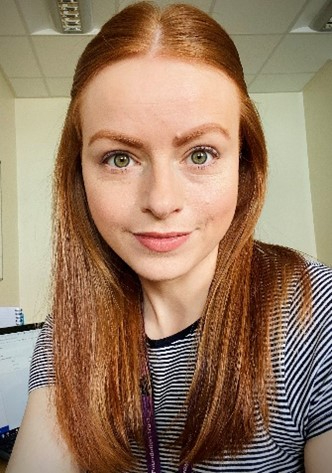Jess Cadwallader, a Genetic Counsellor based at Liverpool Women’s Hospital has shared her day-to-day roles and responsibilities, with us, as well as her career highlights to date.
What does a typical day look like for you?
My daily role as a Genetic Counsellor is rich and so wonderfully varied that it is often more helpful to consider my role across an average week. Within a week I will run several clinics which involve patient contact in a variety of forms (face-to-face, telephone, or video call appointments) to discuss their family history or suspected family history of an inherited genetic disorder.
As I have a general caseload, I see many patients with different conditions that span a range of specialties, and as well as scheduled clinics, we speak to patients in an ad-hoc and urgent capacity, such as those families who are considering the impact of their family history on decisions in pregnancy. I attend a range of local and regional Multi-Disciplinary Team (MDT) meetings and clinics across meetings and clinics each month, contributing to the team working to deliver specialist services in mainstream settings and to groups of patients affected by rare diseases in a range of settings.
What are your role/main responsibilities in your current job?
My role is that of an NHS clinician in a patient-facing capacity, to support patients and their families in the face of a genetic diagnosis or genetic risk to understand and adjust to this information and make informed decisions about their health and communicate this with their family.
As a Genetic Counsellor, I speak to patients about their family history, to provide information about the possibility of inherited genetic risk, helping to frame and understand what this risk means and how this will impact them in their lives. We often discuss how we can support the communication of genetic information within a family, and. This supports patients in making decisions about genetic testing and healthcare management options, in a way that is in keeping with their life situation and beliefs. We may see patients on several occasions and can see many generations of a family over the years.
What is the most rewarding part of your job?
I think most people choose to work in Genomic Medicine, for the ultimate benefit of our patients. Easily the most rewarding part of my job is my work directly with patients and families, supporting them through often challenging and worrying times which may include a genetic diagnosis or the clarification of genetic risk.
We are not always able to give good news but being a part of a family’s journey to better understanding, increased awareness, and a sense of empowerment about their health and wellbeing well-being is a privilege.